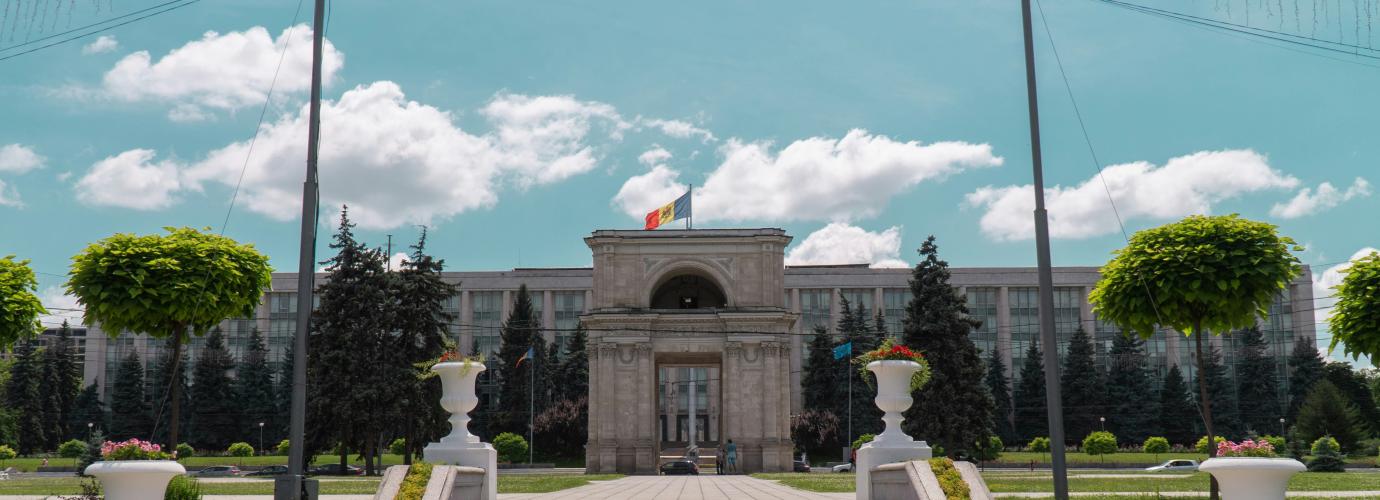In the Republic of Moldova, the political system is structured in accordance with the Constitution adopted in 1994 and its subsequent provisions. The main executive and legislative bodies at the national level are represented by the President of the Republic of Moldova, the Parliament and the Government. The legislative, executive and judicial powers are separated and collaborate in the exercise of their prerogatives, according to the provisions of the Constitution.
The territory of the Republic of Moldova is organised, administratively, into villages, towns, districts and the autonomous territorial unit Gagauzia. According to the law, some cities can be declared municipalities.
The President of the Republic of Moldova is the head of state and exercises his/her functions according to the constitutional provisions. He/she is elected by direct vote for a four-year term and performs ceremonial roles, signing laws passed by Parliament and representing the state in foreign relations. The President can also play an important role in domestic politics, having the power to propose the candidate for the position of Prime Minister after consultation with the political parties.
The Parliament is the supreme legislative body of the Republic of Moldova and consists of a single chamber. Its members are elected by universal, equal, direct, secret and freely expressed suffrage for a term of four years. The Parliament has the competence to adopt laws, decisions and motions, declare referendums, interpret the laws and ensure the unity of the legislative regulations throughout the country, approve the main directions of the state's internal and external policy.
The Government is the executive body of state power and is led by the prime minister, appointed by the president and approved by Parliament. It ensures the realisation of the internal and external policy of the state and exercises the general management of the public administration. Moreover, the Government ensures the execution of the normative acts of the Parliament and the decrees of the President of the Republic of Moldova, but also submits legislative initiatives to the Parliament. Government ministries and agencies are responsible for managing various sectors of public life such as health, education, economy, infrastructure, environment, culture, etc.
Key ministries involved in education include the Ministry of Education and Research, which is responsible for formulating and implementing educational policies, monitoring educational institutions, and ensuring the quality of education in Moldova. It manages education at all levels and coordinates educational reforms. In addition, the branch ministries also play an essential role in promoting education by field: the Ministry of Culture – in the field of arts and cultural heritage, the Ministry of Health – in the regulation and support of medical education, etc.

